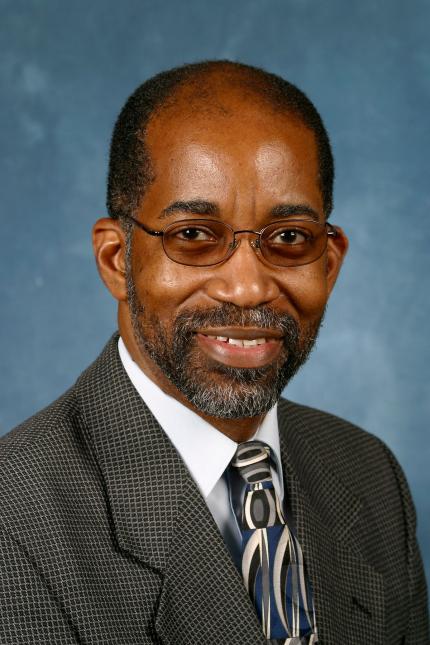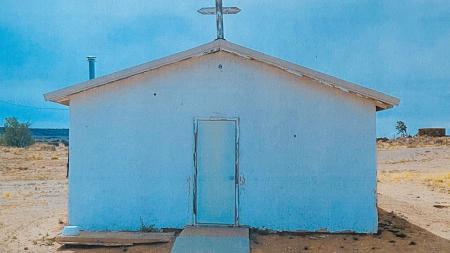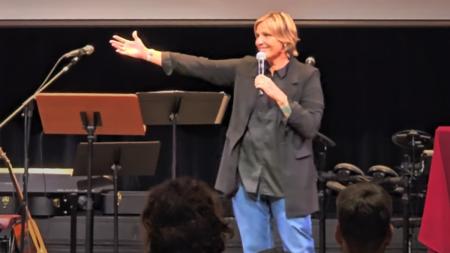Churches Can Help Counter Discrimination That Is Making Black People Sick

January Series 2018
Racism is making African Americans sick in many ways, but a strong faith that impacts daily life can help counter those physical effects, said public health expert David R. Williams at the January Series 2018.
In his talk, Williams explained that research increasingly shows racism and discrimination have adverse health effects on African Americans. Similar research also shows that having a strong, outward-focused faith can help reduce those adverse effects.
“Religious involvement can buffer some people who have suffered from the negative health effects of discrimination,” said Williams, the Florence and Laura Norman Professor of Public Health and Professor of African and African American Studies and of Sociology at Harvard University.
“Prospective analyses of the National Study of Black Americans found that multiple aspects of religious engagement — religious attendance, church-based social support, and seeking religious guidance in everyday life — reduced the negative effects of experiences of racial discrimination on mental health,” he added.
While Williams’s presentation focused on religion and health, he also provided a summary of studies that offer strong examples of the impact that discrimination — from waiting longer to hail a cab to receiving a sub-quality education — has on the deteriorating health of blacks.
For instance, the U.S. National Center for Health Statistics has reported that nearly 12 of every 1,000 babies born in the U.S. in 2012 died, compared the death of five white babies per 1,000 births.
Another study, he said, found that new cases of heart failure before the age of 50 were 20 times more common in blacks than in whites.
Williams also pointed out that other studies show that blacks generally require dialysis or a kidney transplant at younger ages than whites and have a higher incidence of end-stage renal disease at each decade of life.
Meanwhile, hypertension also occurs earlier in blacks than in whites, with 63 percent of black persons age 60 or younger having hypertension, compared to 45 percent of whites.
Everyday stresses that accompany lower levels of education and income, unsafe or unhealthy housing, residential segregation, job discrimination, and police profiling are all things that can contribute to poorer health outcomes for African Americans, he said.
These things are insidious and subtle and if you aren’t a black in the U.S., said Williams, you probably have no idea this is true or why it is the reality.
“It is crucial that we raise the awareness of how striking social inequalities lead to these health problems,” said Williams, who has authored more than 150 scholarly papers in scientific journals.
“We have a lack of empathy that drives social policy in this country [the U.S.],” said Williams. “This lack of empathy challenges us to tell the story of discrimination in a way that resonates in our nation -- that says to lawmakers, ‘We can’t have this!’”
In his talk in the Covenant Fine Arts Center at Calvin College, in Grand Rapids, Mich., Williams used a series of slides to illustrate his presentation. On the topic of religion he mentioned that churches can either add to the problem of discrimination and help foster deteriorating health among blacks, or churches and religious faith can help to combat it.
Past research has found that religious people who hold onto a more orthodox, fundamentalist faith are more likely to be prejudiced and will help perpetuate the cycle of bad health, said Williams, who has edited collections of research and has had his research published in leading journals in sociology, psychology, medicine, public health, and epidemiology.
“These are the people who are extrinsically religious; they see religion in a utilitarian, legalistic way as a matter of rules and practices to follow,” said Williams. “As a group, this group is more close-minded and inflexible.What seems to be important is not the content of the religious beliefs but the inflexibility with which one’s beliefs are held.”
In contrast, recent research has found that people who are more intrinsically oriented — those who see their religion as meaningful in all areas of life — are associated with lower levels of racial prejudice.
People whose faith can be described this way seem to be more able to accept that racism, in its many forms, makes people sick — as well as to treat people who are different than themselves with kindness.
“Intrinsic religion refers to religious involvement that is personally meaningful, is integrated into one’s worldview, and serves as a central motivation for them,” said Williams.
Those who are more intrinsically religious tend to be Christians who try to follow the way of living that Jesus presented to his disciples.
This is a group that is more apt to take Matthew 25:35-36 to heart: “For I was hungry and you gave me something to eat, I was thirsty and you gave me something to drink, I was a stranger and you invited me in, I needed clothes and you clothed me, I was sick and you looked after me, I was in prison and you came to visit me.”
With the teaching of Christ as a guide, religious institutions can play an important role in helping white members see more clearly the needs and struggles facing blacks.
“Religious institutions can spur compassion and especially empathy and social justice,” said Williams, who has been involved in the development of health policy at the national level in the U.S. He has served on the Department of Health and Human Services’ National Committee on Vital and Health Statistics.
Religious institutions, who take Christ’s commands seriously and are able to see beyond themselves to the injustices that can, among other things, lead to bad health in their black brothers and sisters, can “create safe spaces that foster and encourage interracial interaction,” said Williams.
Creating those safe spaces can be full of anxiety, Williams added, “because they require us to step out of our assumptions and try to understand where others are coming from.”
But he encouraged people to do this because, in fact, Christians are called to act in this way.
Williams finished his talk by saying, “Clearly racism is a complex problem. But there are multiple ways to reach out and make a difference. . . . To be a Christian means to have a heart broken by the things that break the heart of God.”


